I was excited to see Talawa’s new production, Recognition, earlier this week, which forms part of the This Is Croydon programme. Written by Amanda Wilkin and directed by Rachael Nanyonjo, Recognition parallels the stories of two classical musicians from different times – the Croydon-raised black composer Samuel Coleridge-Taylor back in the Victorian/Edwardian era, and Song, a young black woman who’s studying for a music degree in recent years (2017-2020). Croydon’s famed and forgotten composer Coleridge-Taylor achieved global creative success in the early 1900s, but his work never made it into the establishment’s classical music syllabus with the other greats (the syllabus Song is studying in the play). The story neatly alternates between the two eras, taking us through Coleridge-Taylor’s life, and Song’s studies, with both narratives coming to a climax as they face similar challenges in their creative fields because of the colour of their skin. Of course, music is at the heart of the production with live music being performed throughout.
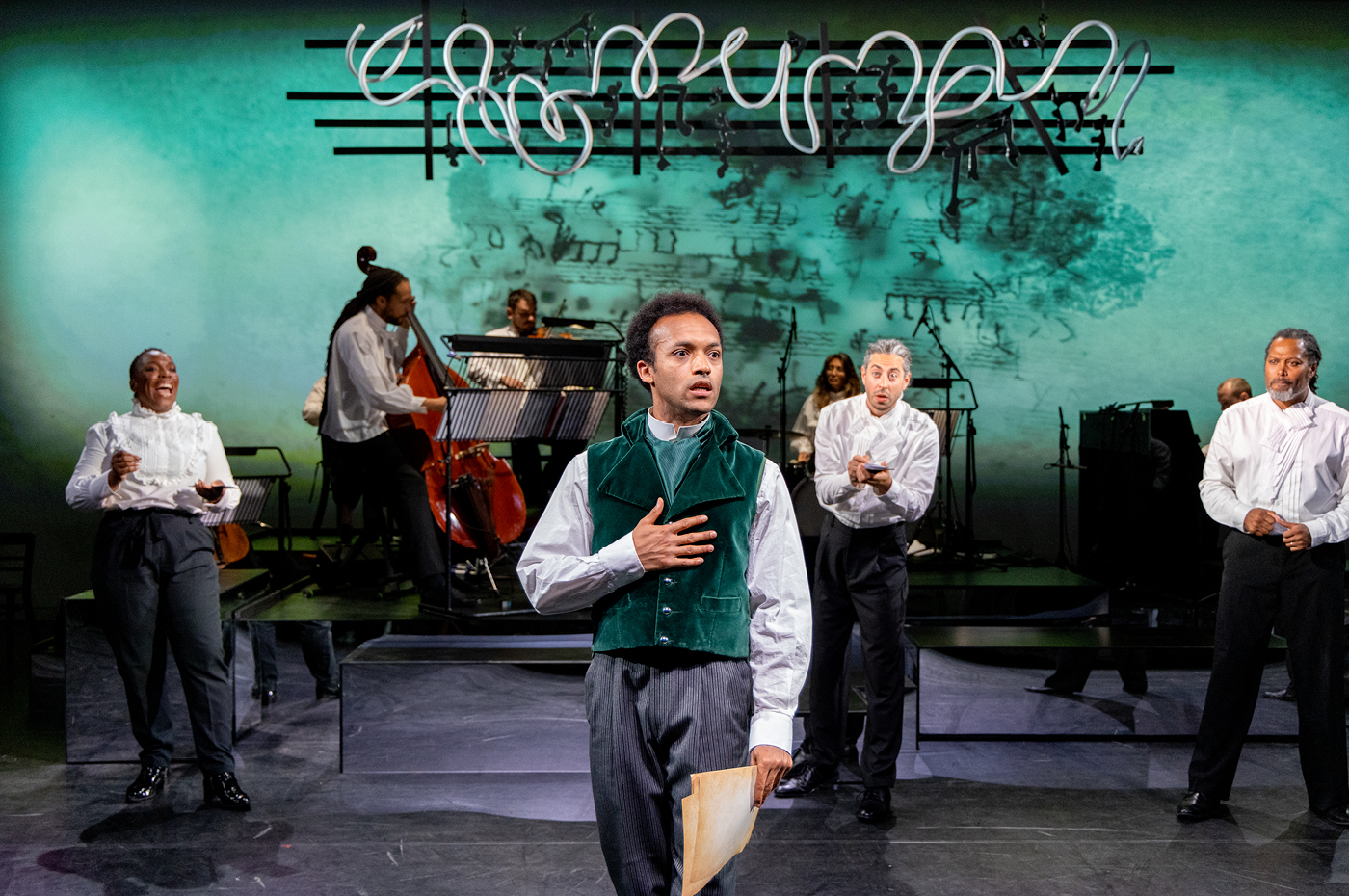
This was the first time I had seen a performance in Talawa Studio (it being one of the new spaces created in the Fairfield Halls refurb in 2019). Set at the top of the Fairfield, it feels large and airy, and for Recognition the audience is arranged on three sides around the performance space. An enormous screen spans the remaining side with musicians raised on a stage in front, and the actors performing in the centre of the studio. I was sitting in the front row, and the actors were often only a metre from me, so I very much felt centre stage to the action.
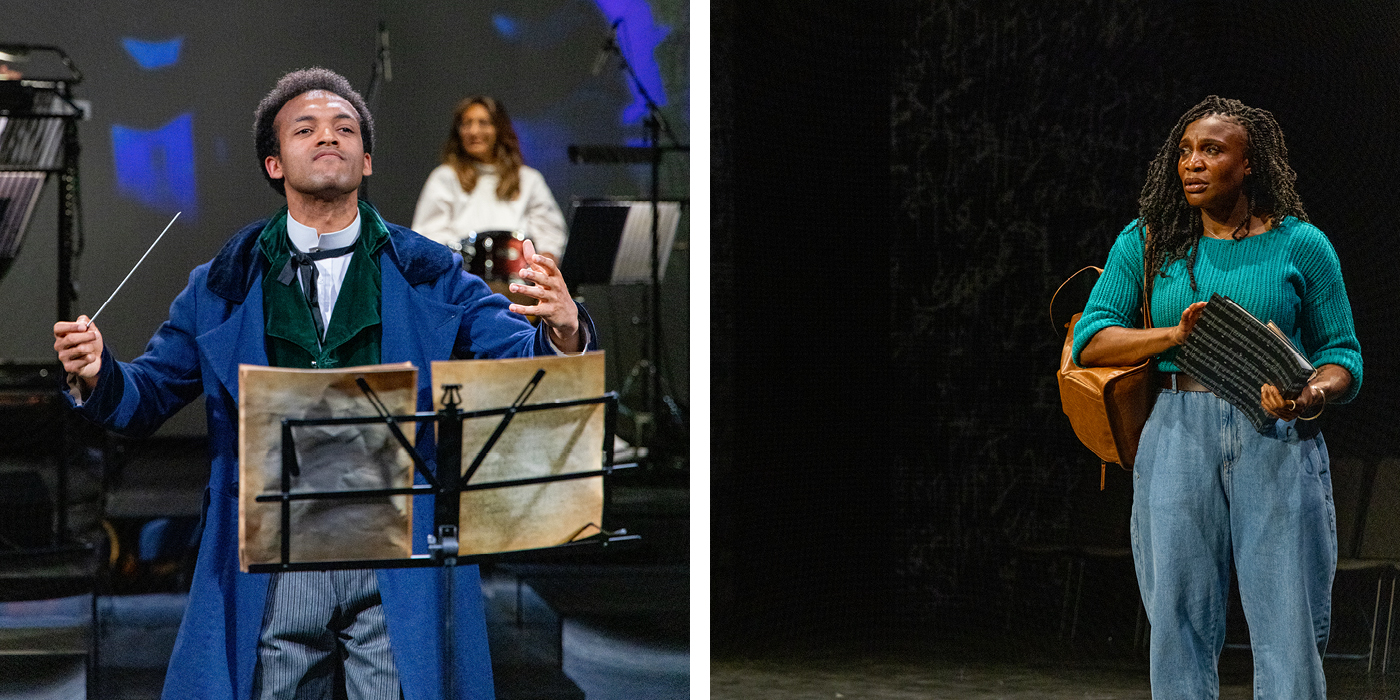
The cast comprises just 15 performers: 7 actors and 6 musicians (although some of the actors also play instruments in the course of the narrative). The two protagonists are played by Paul Adeyefa (Coleridge-Taylor) and Kibong Tanji (Song), who are both mesmerising to watch. All the other parts are cleverly performed by the other five actors who regularly swap their costumes as they swap eras from past to present. The six musicians play a double-bass, cello, two violins, piano and drums. I’m not sure if I can officially call them an orchestra but the sound they produce definitely feels like one.
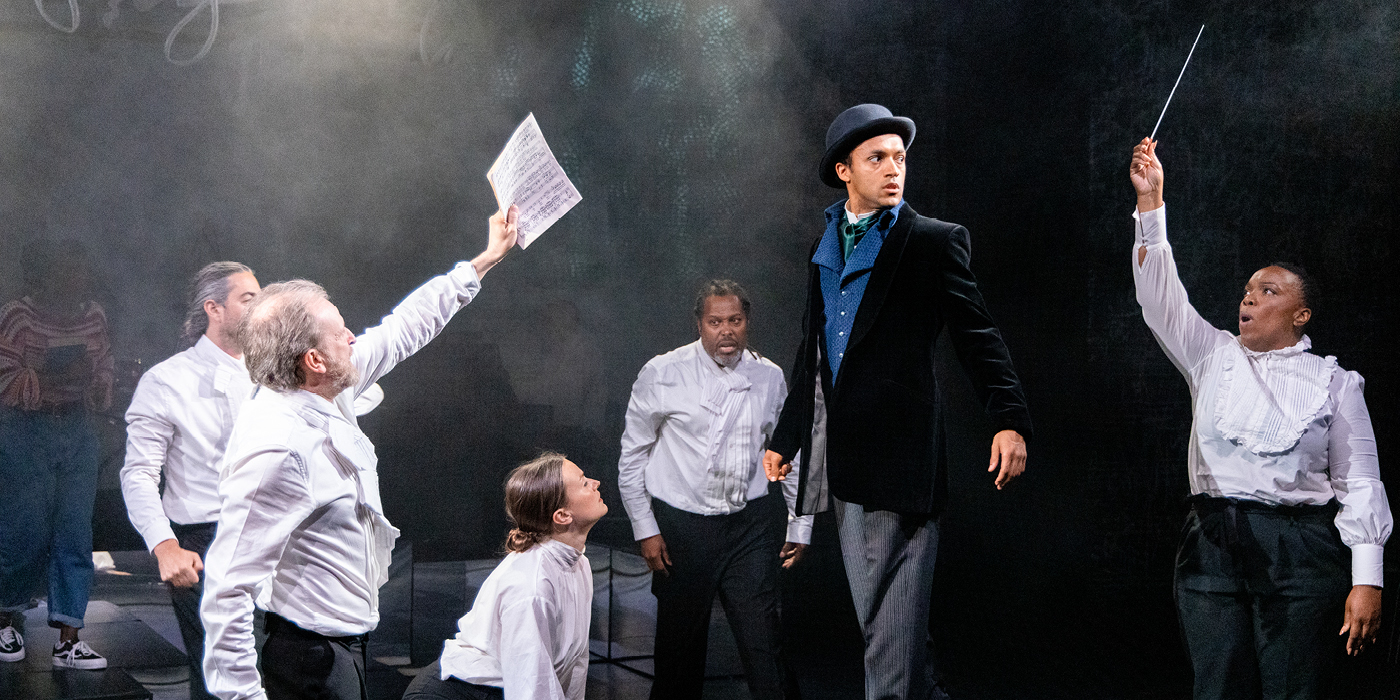
Being a graphic designer, I loved the set – it majors on monochrome, with splashes of colour for emphasis. The video backdrop subtly changes from Samuel’s time in the past to Song’s time in the present, with injections of colour when their compositions are brought to life by the musicians. The costumes mirror this monochrome/colour effect with splashes of blues and greens in the protagonists’ costumes, with the other actors often dressed in black and white.
An impressive stave sculpture hangs over the stage with gestural music in neon which changes from a base of white to a variety of colours throughout the performance.
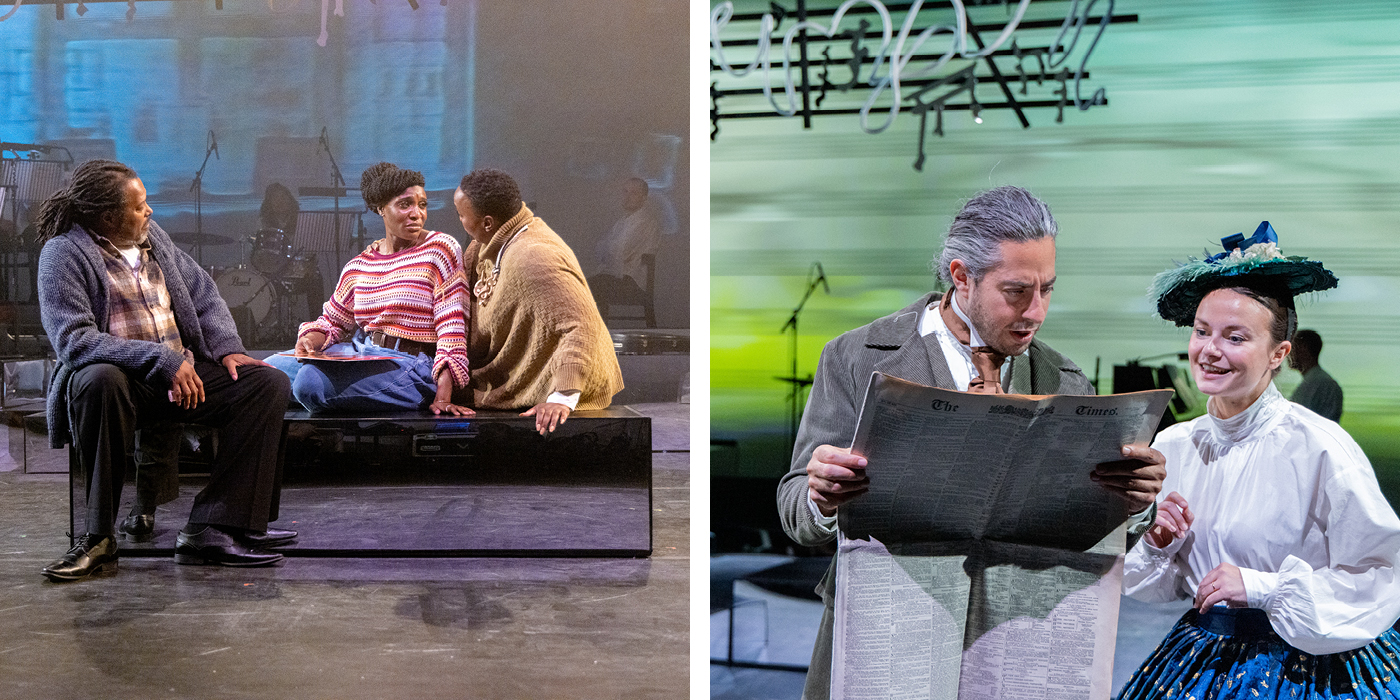
Recognition takes you on a rollercoaster of emotions – both funny and touching (especially the scenes with Song and her parents), as well as thought-provoking and poignant. I definitely had a tear in my eye at the end when Song finds and conducts her music. There is obviously a deeper message for the audience to consider – how much has really changed for black creatives, in the century or so since Coleridge-Taylor lived? Shockingly little.
This production deserves a lot of recognition – it has already quite rightly been nominated for not one but four Offies. I urge you to get over to Talawa Studio before the run finishes on Saturday 24 June. Tickets this coming Monday are a mere £6 and for other performances if you’re a Croydon resident you can pick up a ticket for £10.50 (including booking fee).
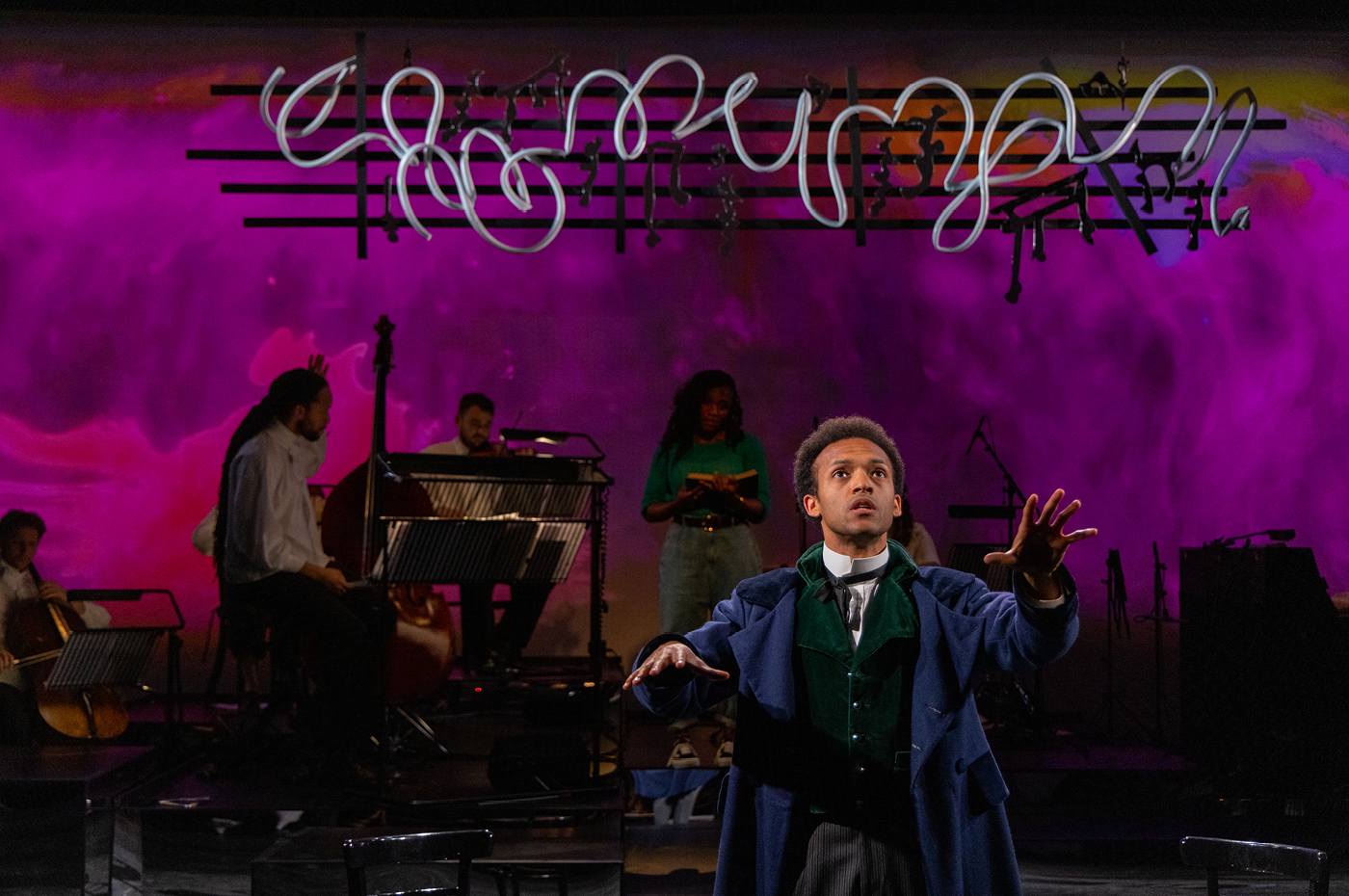
Book your tickets here. Find out more about Talawa on their website and follow them on Twitter, Instagram and Facebook.
Photos courtesy of Talawa Theatre Company by Gifty Dzenyo
Posted by Julia
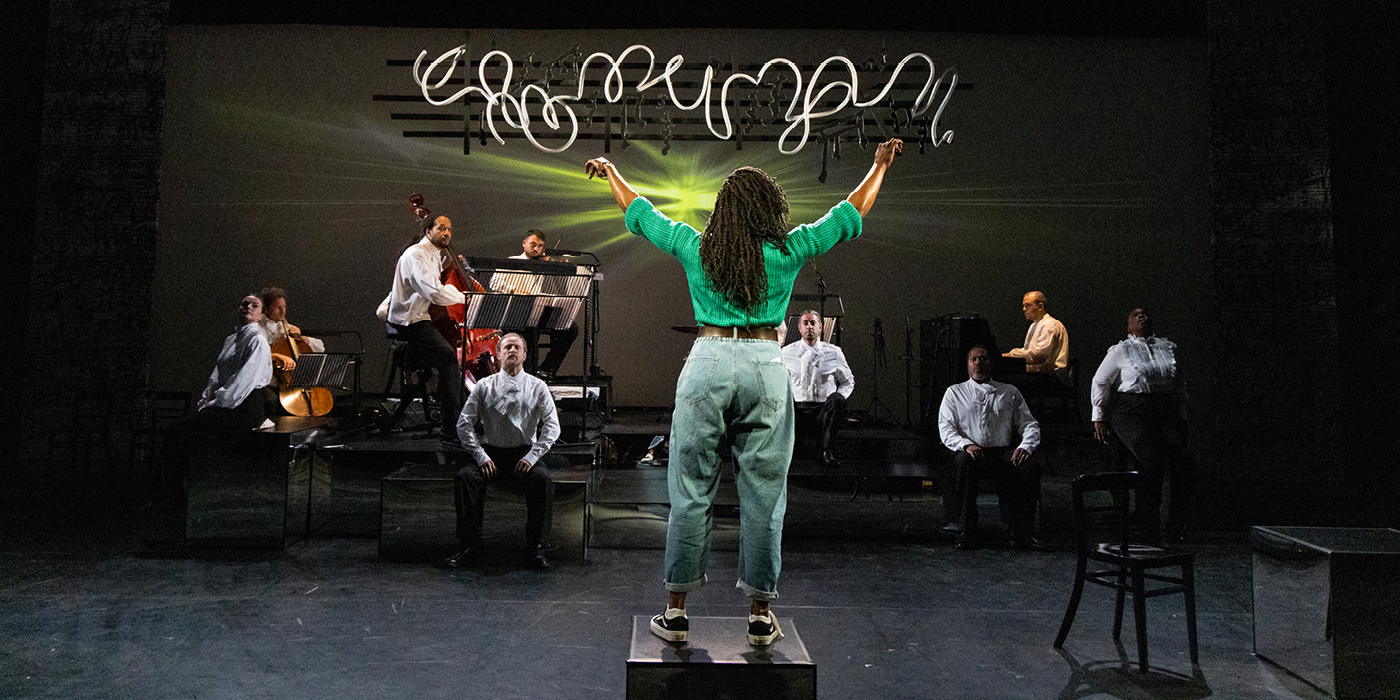
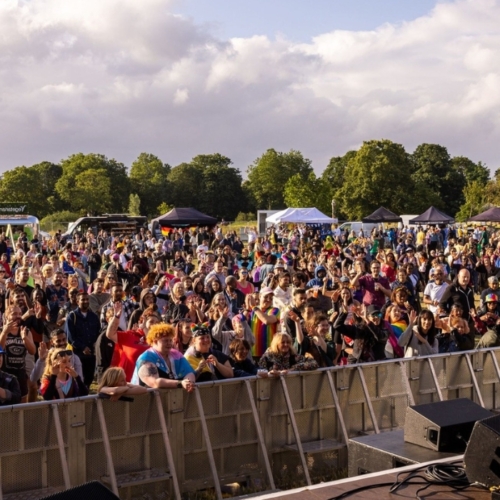



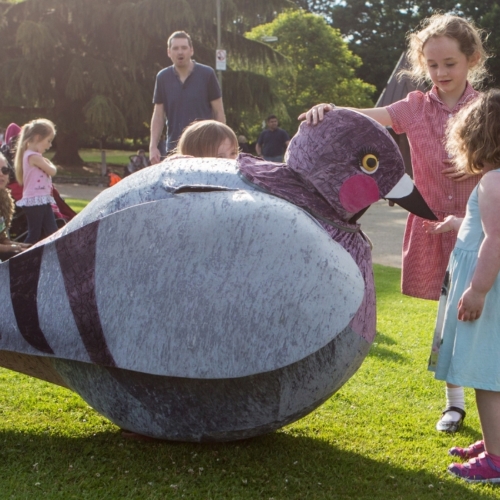
No Comments